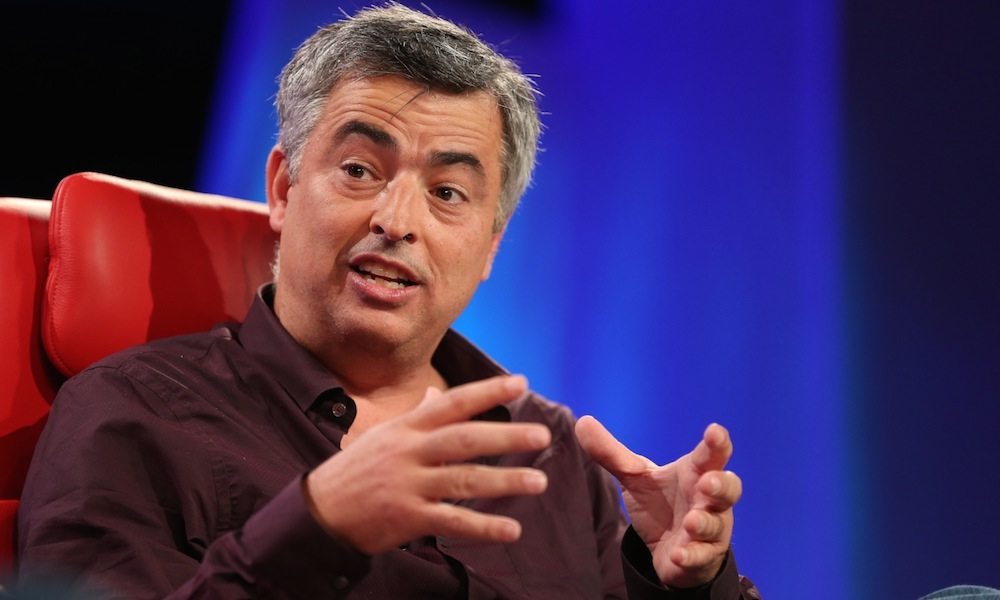This Apple Executive Wanted to Bring iMessage to Android Back in 2013

Toggle Dark Mode
One of the fringe benefits of the ongoing war between Epic Games and Apple is the sheer amount of interesting inside information that’s been coming out as part of the necessary discovery process, revealing some interesting insights into Apple’s decisions and policies over the years in a wide variety of areas.
For example, we already heard earlier this month that Apple’s executives had summarily rejected the idea of bringing iMessage to Android out of fear of losing one of the key advantages of the iPhone ecosystem, but now a new set of depositions have revealed that at least one key Apple executive was actually pushing in the opposite direction as far back as 2013.
The information shared a few weeks ago revealed that Apple had been considering developing iMessage for Android as far back as 2013, but senior executives such as Phil Schiller and Craig Federighi ruled it out, with Apple employees and executives noting that “the #1 most difficult [reason] to leave the Apple universe app is iMessage … iMessage amounts to serious lock-in”, and that “moving iMessage to Android will hurt us more than help us.”
It turns out that not all of Apple’s senior execs were on board with this line of thinking, however. New depositions shared by The Verge reveal that Apple’s Senior VP of Software and Services, Eddy Cue, wasn’t merely suggesting the idea of bringing iMessage to Android, but was actively pushing back in 2013 to create a full team that would be devoted to building an iMessage app for Android.
Sadly for Android users — and the iPhone users who want to communicate with them — Cue was overruled by other Apple executives, basically for the reasons already described.
The underlying exhibit of the actual emails has yet to be made public, however The Verge has pieced together the email conversation from the deposition that shows more or less how the conversation went back in April 2013, adding more context to the quote from Federighi revealed in the earlier documents.
Cue: We really need to bring iMessage to Android. I have had a couple of people investigating this, but we should go full speed and make this an official project…. Do we want to lose one of the most important apps in a mobile environment to Google? They have search, mail, free video, and growing quickly in browsers. We have the best messaging app, and we should make it the industry standard. I don’t know what ways we can monetize it but it doesn’t cost us a lot to run.
Federighi: Do you have any thoughts on how we would make switching to iMessage (from WhatsApp) compelling to masses of Android users who don’t have a bunch of iOS friends? iMessage is a nice app/service, but to get users to switch social networks we’d need more than a marginally better app. (This is why Google is willing to pay $1 billion — for the network, not for the app.)… In the absence of a strategy to become the primary messaging service for [the] bulk of cell phone users, I am concerned [that] iMessage on Android would simply serve to remove an obstacle to iPhone families giving their kids Android phones.
As the snippet of conversation between Cue and Federighi suggests, the concern at the time was the fear that Android would produce a dominant message platform that could be more compelling than iMessage. It’s probably telling that this discussion also occurred not long after Google was rumoured to be courting WhatsApp to the tune of $1 billion — it’s fairly easy to see how this could have made some Apple executives nervous.
Of course, as history has shown, Google dropped the ball on that one — WhatsApp was later acquired by Facebook — and Google has continued to stumble along in producing a compelling alternative to iMessage that would unify the world of Android users into a single messaging platform.
The result is that most Android users still live in a fragmented world of disparate messaging systems anyway, and few likely use the built-in messaging apps that are provided by Google or smartphone vendors like Samsung, opting for platform-agnostic systems like WhatsApp, Facebook Messenger, Telegram, Signal, and more.
However, the same can also be said for many iPhone users, rendering many of the anticompetitive concerns about iMessage moot now anyway. Even now, Cue still disagrees with Federighi’s now-infamous concerns that “iMessage on Android would simply serve to remove an obstacle to iPhone families giving their kids Android phones.” When pointedly asked in the deposition whether “not having iMessage on Android has created an obstacle to families giving their kids Android phones,” Cue responded unequivocally with, “No, not at all.”
At this point, it’s fair to say that we won’t ever see iMessage come to Android, but 2013 was also a very different era in the world of messaging systems, and it’s equally fair to say that today the bulk of smartphone users have long moved away from the concept of platform-specific messaging apps anyway.






